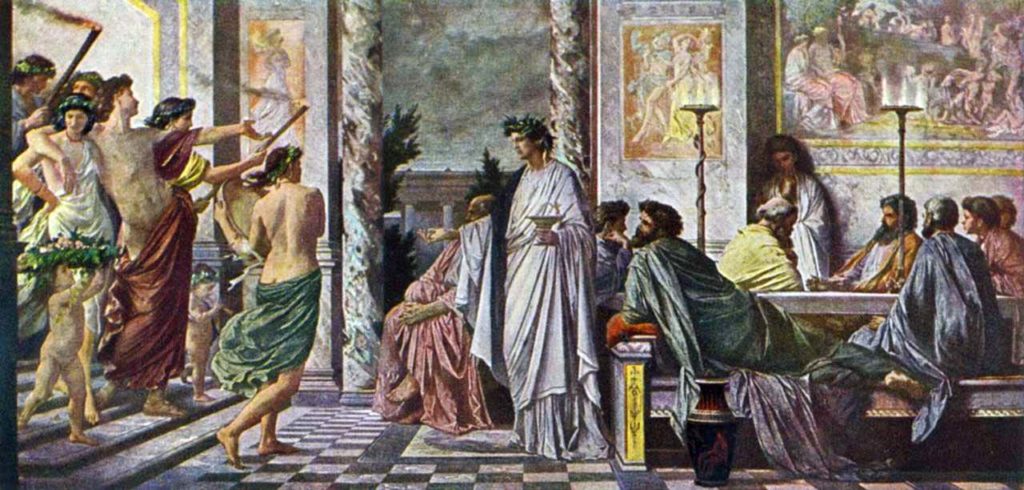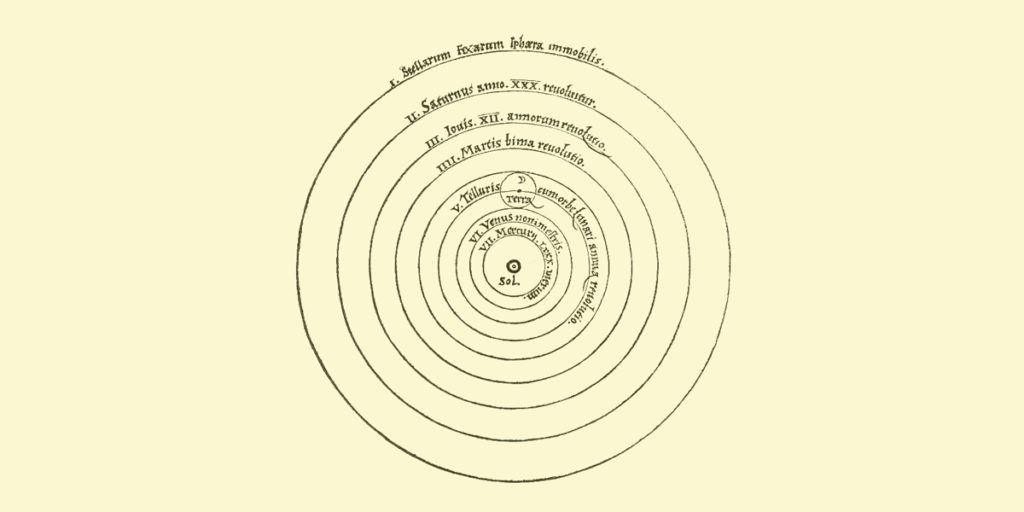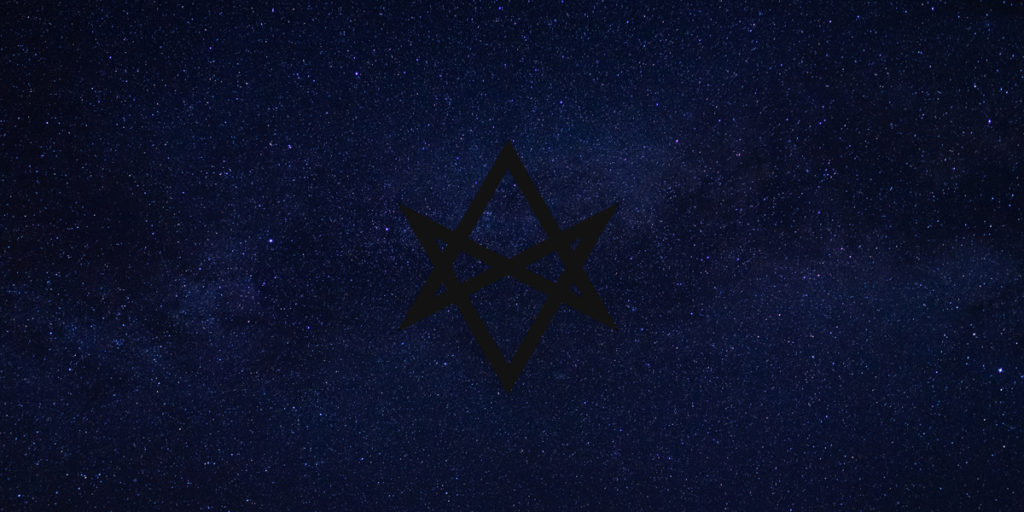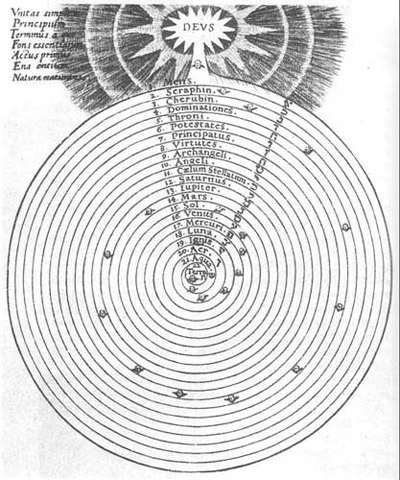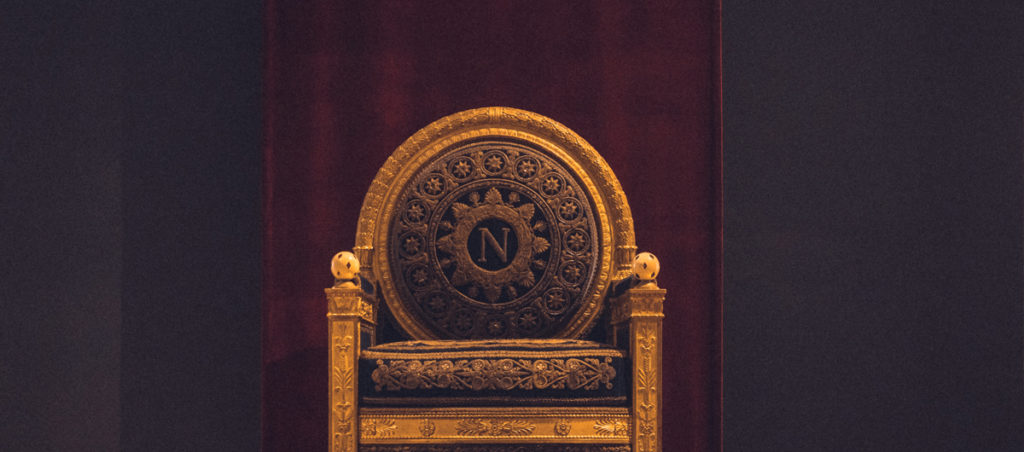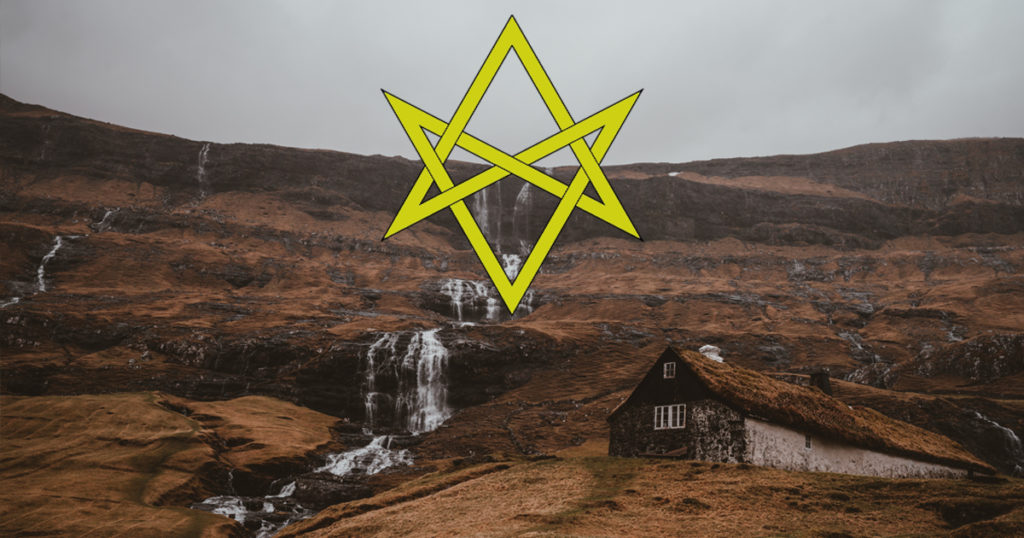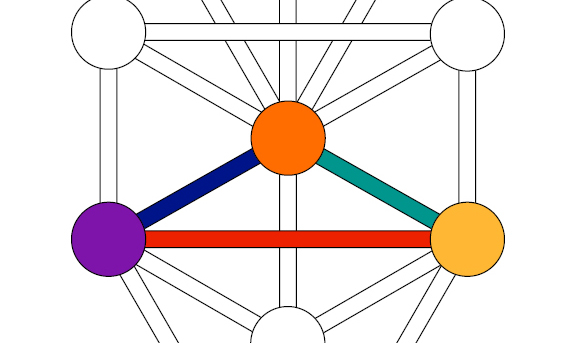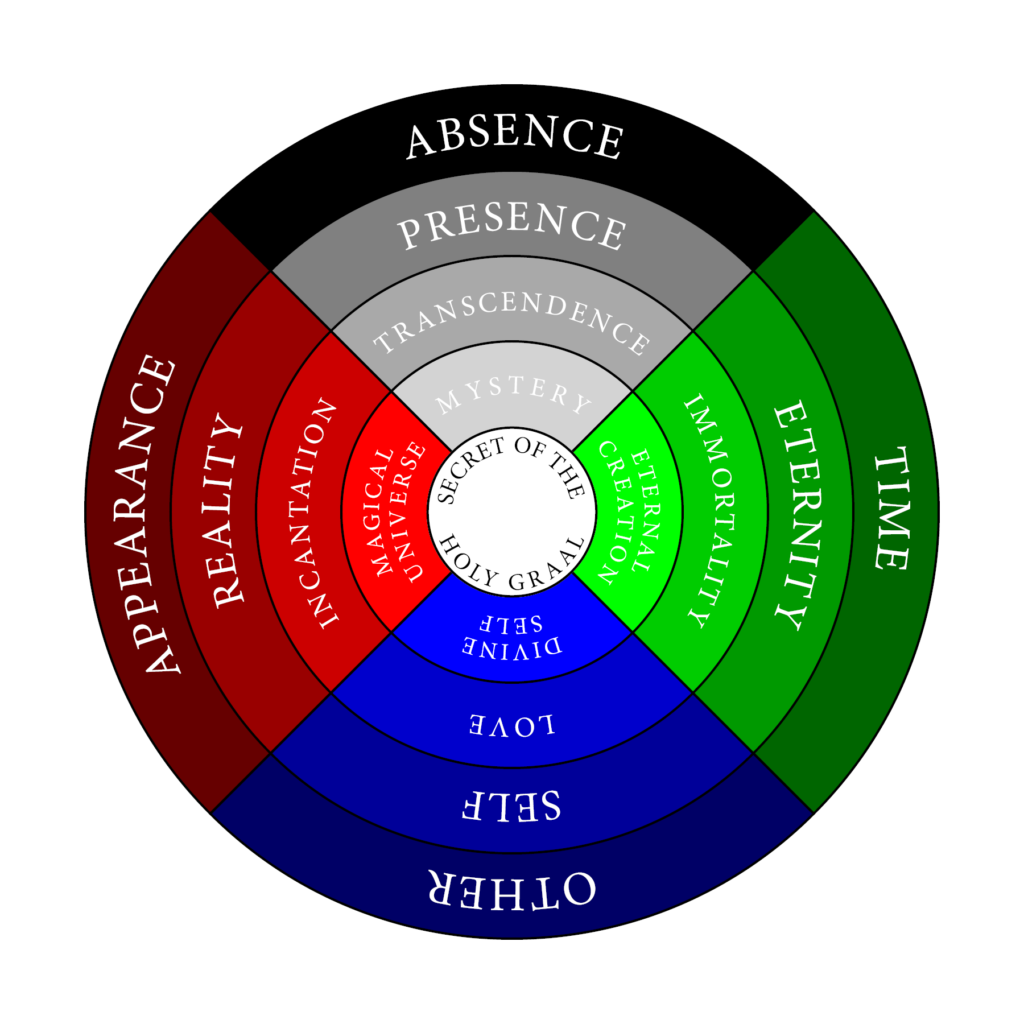
Is the Holy Guardian Angel part of ourselves? Is it outside of ourselves? Is it outside of ourselves but still part of ourselves? Is it the whole universe? Is it just the higher part of my soul? These sorts of questions come up all the time.
In one respect the question is very easy to answer, in another extraordinarily difficult. It’s difficult because Crowley’s idea of the Holy Guardian Angel—he gets the term from Abramelin but gives it legs and makes it the center of his spirituality—is a contribution to a larger discussion about the divine individual which has been going on in Europe and the Near East for over two thousand years. It’s easy because, as far as formulations of the phenomenon go, Crowley’s was pretty straightforward.
Awhile back Erwin Hessel went through almost everything Crowley said on this subject and provided a coherent synthesis. I’m not going to repeat what he said, though I will rely on some of his conclusions. My purpose here is to express as simply as possible what I think Crowley intended so you can get on with your own quest for divine individuality without worrying too much what Crowley himself did or didn’t think.
The quickest way to understand this doctrine is to just take a look at reality. Are you a spiritual seeker? If you are reading this, odds are extraordinarily high that you are. You are responding to some inchoate prompting from within yourself, a prompting which you probably became acutely aware of during adolescence, which you began to attempt to satisfy through spirituality, philosophy, psychedelic drugs, or other devices that would allow you to experience other worlds.
All of that movement toward some other world of light or secrets, all that spiritual practice toward a state of illumination in the future, is driven by a sense of something lacking or being absent in the present.
There are a lot of different ways you can think about what that something is, and there are different names you can choose for it. You can think of it as Buddha. You can think of it as Jesus Christ. You can think of it as a dead ancestor. You can think of it as God. You can think of it as a nebulous spirit. You can think of it as a Secret Chief of A∴A∴. You can think of it as your yoga teacher.
Crowley’s term for this something is Holy Guardian Angel. He chose that term because he felt it was sufficiently vague but also that a child could understand it. But there are really only two things you need to understand about it:
Whether you call it Holy Guardian Angel, Jesus, Buddha, God, the Divine, the Universe, or whatever other name, you are dealing only with a name, a concept, an appearance, an illusion—not reality. You need to understand the concept well enough to use it, but understanding the concept perfectly is not the most important thing. The most important thing is that you are effectively seduced by the image.
When I say “seduced,” I mean that you are sufficiently attracted to the image such that you are willing to pursue it, to go all in for it. In other words, it matters less what the image is, just that it matches closely enough the shape of the absence in your heart.
When I say “image,” I don’t just mean the particular object you are pursuing, be it “union with the divine,” “samadhi” or whatever. I also mean the entire system of practices and beliefs you submit yourself to. This is probably the most difficult part of this to grasp. Practices like meditation and magic are also “images” in the sense that I’m using the term, and it is important that you are seduced by them as well. Theories like Kabbalah or systems like A∴A∴ are also images.
What I’m saying is, you don’t need to pick the right system, and you don’t need to pick the right set of practices, at least not in any abstract sense. You just need to find one and fall in love with it.
Am I implying that you will eventually become disillusioned and fall out of love with it? Not necessarily. That depends on more factors than I can cover here.
The first responsibility of any spiritual teaching is to honor the illusion of separateness between you and the divine. It’s to begin from who and where the student is: a seeker seeking spiritual experience, illumination, realization, wisdom, what have you.
Even if the system you’re working in says that everyone is already divine, and even if you already believe that on some abstract, philosophical level, you don’t really believe it, not in the core of your being. Otherwise why would you be seeking? There is some still absence working on you, and your actions show this even if your words do not.
So in that sense, it’s very easy to answer whether the Holy Guardian Angel is you or part of you, etc. It is not.
Even if you believe on a theoretical or philosophical level that the Holy Guardian Angel is part of you—your Jechidah or True Self or whatever—the actual experience to go along with that concept still lies somewhere in the future for you. So it is still “other”.
You may get to a point where you realize that the Holy Guardian Angel was with you at certain moments in the past, but you just weren’t aware. But that retrospective experience still lies for you somewhere in the future. So it is still other.
Some people have gotten upset because there is a particular Thelemic teacher and author who has said that not everyone automatically has a Holy Guardian Angel, and that they must first prove themselves worthy of one. They reference some remarks Crowley made about the Angel being an “objective being,” perhaps a dead adept of A∴A∴.
Here’s the truth about that idea: there is nothing in principle wrong with it. The idea of spiritual ancestors as teachers is an idea that goes back thousands of years. It’s even arguably at the root of shamanism. People have achieved realization using that idea for a very long time—much longer than the idea du jour that everyone is equally divine and great the way they are.
There is a truth indicated in that idea: the acknowledgment of the appearance of separateness. It is an idea which attempts to reflect the reality that the student starts with, which is that divinity is outside of them spatially, temporally, or both. The experience they are seeking is yet to be—otherwise why use a strategy (teachings, practices, etc.) to attempt to bring it about?
The falsity of the idea lies, not in the fact that it doesn’t represent reality, but that it is an idea or an image at all.
You might think it is so much less absurd to think things like “consciousness is God,” “the universe is divine,” “every person is born with an HGA in their heart,” “the HGA is the Higher Self,” “my sexuality is divine,” “everyone is already enlightened,” “God is all around me,” “I am God,” or even “Every man and every woman is a star.” But I assure you, those notions are just as deluded as the idea that Marcelo Motta is one’s Holy Guardian Angel. And actually the more quickly you realize that, the more quickly you will make spiritual progress.
In fact, my first spiritual awakening happened shortly after having almost that exact thought.
If you don’t like an image, if you’re not sufficiently seduced by it, then just move on to a different metaphor. Find something that better reflects the sense of longing in your heart. But time spent trying to refute some idea or make fun of it is time wasted—which ultimately says more about you than the idea itself.
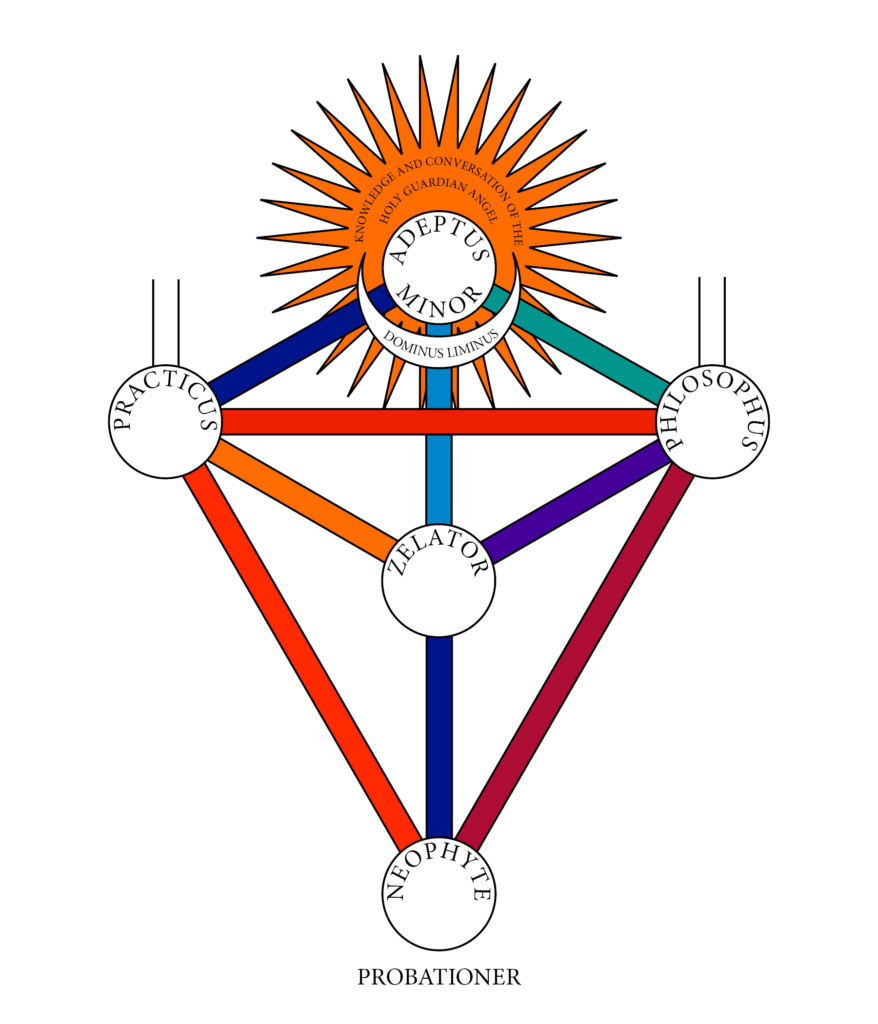
Crowley honors the appearance of separateness by supplying you with the idea of the Holy Guardian Angel, the idea of an experience that lies in your future called Sacred Marriage or Knowledge and Conversation, and a structure—like a ladder, a mountain, or a bridge—that gets you from here to there through stages.
In a certain sense it is very structured. You’ve got the sephiroth on the Tree of Life with tasks you have to complete at each grade. In another sense it is very vague. The idea of the HGA itself is vague. The idea of exactly how to get there—i.e., the particular act that will bring about the Marriage—is undefined and left up to each person. This reflects Crowley’s realization that, although the term Holy Guardian Angel comes from the western occult tradition, the ultimate aim of spiritual practice is non-secular.
Once one achieves Knowledge and Conversation—which is basically samadhi—the metaphor shifts. The Angel is still separate, but one is now also “pregnant” by the Angel. This is illustrated in The Wake World where Lola becomes pregnant in the house of Netzach which Crowley associates with ananda or bliss. The idea of the soul becoming pregnant through bliss is an old one. See Plato’s Symposium.
At the risk of putting too fine a point on this: The aspirant is Heh-final, the Virgin Daughter, whose spiritual longing—which I am speaking of as a heart with a hole in it—is presented as an empty womb in Crowley’s version of Tetragrammaton. The Angel—Vau of Tetragrammaton—fulfills that emptiness, penetrates it, puts a child in it, which it is now the Adeptus’s destiny to deliver.
Crossing the Abyss requires, among other things, clearly seeing the nature of the aggregates or skandhas. One sees that body, mind, thoughts, feelings, habits, and even consciousness are not self and are impermanent. There is the symbolic “delivery” of the pregnancy at Binah. In The Wake World there is now a new “fairy prince” (Holy Guardian Angel) in Tiphareth.
There is a lot of doctrine packed into this symbolism, but here are a few ideas to help work through it.
With the pregnancy, the divine is now “within”. However, with Crossing the Abyss, the idea of “within” and “without” is permanently complicated—which is the same as saying it is completely simplified. Whether the Angel is part of the self, other than the self, was part of the self but not realized, was sometimes part of the self or not—all seen as the wrong questions.
This also permanently changes the meaning of awakening or realization. Crowley uses the metaphor of the self being destroyed as it crosses the Abyss. This makes it sound more dramatic or histrionic than it needs to be. It’s enough to say that awakening does not belong to an individual—maybe in the same way it makes sense to say that pregnancy does not belong to a mother but is rather a moment in the process of the generation of the species. One is not getting something for oneself by waking up but rather completing part of the cosmological cycle. It’s this understanding of the cosmological process which defines Thelema, not “doing my will” or getting anything else for myself.
Therefore the idea of my Angel, my illumination, my Knowledge and Conversation was never part of fundamental reality. That was actually a misunderstanding that had to be worked through. Why? Because reality is such that truth is only ever found in and through falsehood. This is why the notion of the “Angel” as “other” is as necessary as it is false.
The reason there is a new Fairy Prince or HGA down in Tiphareth is because the person who has crossed the Abyss is now a divinely realized being who must teach others. They must now become the image for a student. They must now honor the appearance of separateness for someone else. This is how they continue to serve the cosmological process, which is now understood as impersonal and not about them. But there is another reason they do this which you can guess if you carefully read the paragraph before this.
The student looks with longing at the teacher. They think the teacher is someone who can help them fulfill the absence in their heart. They want to feel God’s heart in theirs, and the teacher is the one who can help them do this, because the teacher has accomplished this for themselves. (The last two words here are delusional—they didn’t do anything for themselves.)
And when the teacher looks at the student, they see the hole in the student’s heart. So they are able to acknowledge the student’s sense of loss. They are able to honor the student’s sense of separation in a way which makes sense to the student, which seduces them. These are the teachings and practices the teacher offers the student to satisfy the longing.
But there is something the teacher sees in the student’s heart which the student cannot.
The hole in the student’s heart is letting through the most brilliant light they have ever seen.

